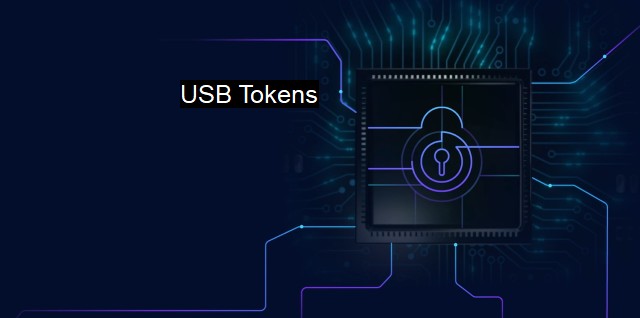What are USB Tokens?
Exploring the World of Cybersecurity: Understanding the Function of USB Tokens and How They Enhance Digital Security
USB tokens, often referred to as hardware tokens or security tokens, are physical devices that are used in cybersecurity to store digital data and prevent unauthorized access. These tokens provide an additional layer of defense in protecting sensitive data and are a significant part of multi-factor authentication strategies and antivirus protection which are crucial aspects of cybersecurity.A USB token functions in a way relatively similar to an electronic key. The token itself is a small device resembling a typical USB flash drive. instead of storing files, the primary purpose of these devices is to authenticate the user trying to access a network, database, or other secured digital environments.
In terms of use within the vast realm of cybersecurity, these tokens are used as a form of multi-factor authentication. This means that aside from entering a username and password, the user must provide the USB token as well. This form of authentication adds a physical factor in to the security measures which can drastically improve cybersecurity posture.
There are several types of USB Tokens with varying functionalities. a common factor is that they all aim to establish secure communication between parties involved reveal identity information only to the intended recipients.
One type are cryptographic tokens. These tokens hold cryptographic keys and perform cryptography functions, something done by cryptographic processors located in the token. They can be used or various purposes, from authenticating users to cryptographically signing electronic documents. Cryptographic tokens help to secure all of the information they transmit through the inherent strength of cryptographic processes, making it extremely difficult for hackers to get hold of this information.
A second variety is the one-time password (OTP) USB tokens, these generate unique, one-time passwords for each user login attempt. Each OTP is random and unpredictable, which makes it almost impossible for cybercriminals to predict the sequence to gain unauthorized access to the network.
Biometric USB tokens are another form. These types contain biometric information – fingerprint data, iris patterns, facial data, voice signatures, and so on. Biometric tokens use this information to confirm the identity of an individual, thus ensuring the security of vital systems from unauthorized access.
When it comes to antivirus protection a USB token can protect a computer by preventing automatic execution of malware when a compromised external device is inserted. Traditional antivirus software may not scan these devices immediately upon insertion, which allows viruses to infect a system. USB tokens add an additional layer of security by forcing authentication, thereby preventing automatic execution and requiring validation.
Harnessing the power of USB Tokens in cybersecurity should not replace the crucial role of anti-virus software, but supplements and deepens the security protocols already in place. The sophisticated combination of multi-factor authentication involving these USB tokens, solid password policy management, and up-to-the-minute antivirus software creates a secure environment that makes it exceptionally difficult for unauthorized entities to penetrate.
USB tokens present an advanced solution that strengthens the cybersecurity landscape at large. They enhance effectiveness, ensure compliance, and drive operational efficiency like no other cybersecurity technology. the ultimate payoff is peace of mind, because at the end of the day, your valuable and sensitive digital data remains shielded under solid, reliable and almost impenetrable layers of security.

USB Tokens FAQs
What is a USB token?
A USB token is a physical device that functions as a secure data storage unit for digital certificates and encryption keys. It is a type of hardware security token that is used in cybersecurity and antivirus to protect the data from unauthorized access.What are the benefits of using USB tokens?
USB tokens offer several benefits, such as ensuring secure communication, protecting against malware, providing user authentication, and supporting digital signatures. They are also portable and easy to use, which makes them an ideal solution for professionals who need to access secure data on the go.How do USB tokens work?
USB tokens work by storing digital certificates and encryption keys, which are used for secure authentication and encryption. When a user inserts the USB token into a computer, it prompts them to enter their password or biometric data, and then it grants access to encrypted files or applications. The information on the USB token is protected by a password, PIN, or biometric authentication, which prevents unauthorized access.What are some examples of USB tokens?
Some examples of USB tokens include YubiKey, RSA SecurID, Gemalto IDPrime, and SafeNet eToken. Each of these USB tokens provides various levels of security and features, depending on the needs of the user.| | A | | | B | | | C | | | D | | | E | | | F | | | G | | | H | | | I | | | J | | | K | | | L | | | M | |
| | N | | | O | | | P | | | Q | | | R | | | S | | | T | | | U | | | V | | | W | | | X | | | Y | | | Z | |
| | 1 | | | 2 | | | 3 | | | 4 | | | 7 | | | 8 | | |||||||